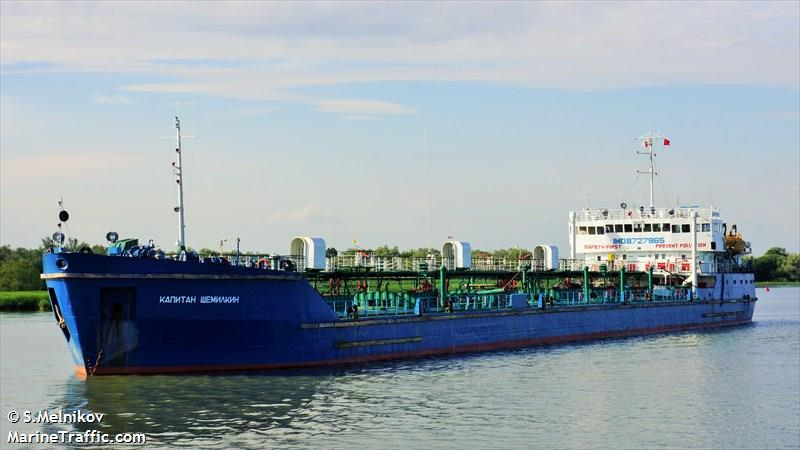The illicit ship-to-ship transfers of Russian oil off Malta increased by up 220% over the last quarter, just as Malta was fiercely opposing new EU sanctions aimed at limiting the practice, according to a report by maritime artificial intelligence company Windward AI.
The report’s data indicates that there has been a large increase in exports from Russia to Africa via such ship-to-ship transfers.
While many such transfers are being carried out just outside Maltese territorial waters, those ships are no longer to cross the line into Malta, according to the latest round of EU sanctions against Russia aimed at disrupting financial flows feeding its war with Ukraine, which Malta had strongly resisted.
The sanctions focus on banning exactly these tankers that have engaged in the transhipment of Russian oil from EU ports, meaning they would not be able to enter Malta after engaging in the illicit practice.
Also banned are ships that have switched off their navigation systems to hide the fact they have docked at Russian ports or have taken on fuel from other tankers at sea – a practice reportedly proliferating just outside Maltese waters – to obscure its origins.
It is believed the measure will affect hundreds of tankers. Malta, Greece and Cyprus are reported to have resisted the measure to protect their shipping and flag registration industries, despite international concern that the illicit sale of Russian crude oil is helping fund its war in Ukraine.
The recent new round of EU sanctions was the 11th package imposed on Russia. They mainly aim to address loopholes a shadow fleet of tankers engaged by Russia is using to circumvent restrictive measures.
According to the text of the EU Council’s decision, “Attempts to circumvent Union restrictive measures have resulted in a sharp increase of deceptive practices by vessels transporting Russian crude oil and petroleum products.
“Consequently, it is appropriate to prohibit access to ports and locks in the territory of the Union by vessels engaged in ship-to-ship transfers where the competent authorities have reasonable cause to suspect that a vessel is in breach of the ban on importing seaborne Russian crude oil and petroleum products into the Union or is transporting Russian crude oil or petroleum products purchased above the [US$60] price cap agreed by the Price Cap Coalition.”
The EU is concerned about a shadow fleet of hundreds of ageing tankers carrying Russian oil that were possibly purchased at prices above the $60 per barrel price cap imposed by the G7.
Many of the vessels, owned by a network of shell companies, have adopted the practice of switching off their navigation systems to hide illicit activities tied to the sale of Russian oil.
The Shift reported last December how a Russian oil tanker had been tracked by an NGO in the waters around Malta in a suspected training exercise for busting EU and G7 oil shipment sanctions imposed against Russia.
The transponder signal of the Russian tanker, the Kapitan Schemilkin, was found to have been tampered with to make it appear as though it was moving in circles around Greece between May and July when, in fact, it was moored offshore east of Malta, after which it is suspected of having delivered Russian fuel that it took on board to a power station Northern Cyprus.
The waters around Malta are known to be rife with ship-to-ship transfers of Russian oil, although it is being done just outside territorial waters.
The new measures proposed by the European Commission and now agreed upon by member countries, Malta included, will prohibit vessels suspected of such practices from entering EU ports “irrespective of their flag of registration.”
Tankers must also notify authorities if they plan a ship-to-ship oil transfer “at least 48 hours in advance” within specific geographical areas.
Back when the first discussions of the sort were held in May 2022, Transport Minister Aaron Farrugia told The Times of Malta about its resistance: “Malta has its own interests to protect, but we want to balance that with meeting our sanctions obligations.”
Farrugia did not go into further detail but insisted that Malta’s shipping industry is of “huge strategic importance”.
“We have to protect what we have, and that’s why we are looking to find a compromise during these technical meetings,” he said.













So now we understand the extension of the zone. Illicit money – what a surprise!
And also why the convicted Engerer was against more sanctions on Russia.
Malta – the smugglers’ den, another way of prostituting the island by a pimp government.
PPP = Prostitution, Pimping, Pirating.
Mafiamalta this muvument korrot is never tired of shaming us. Go and hide.
Malta and Greece are and have always been the main movers of Russian oil. A large income for Malta. At some point either Brussels or Malta will have to decide.